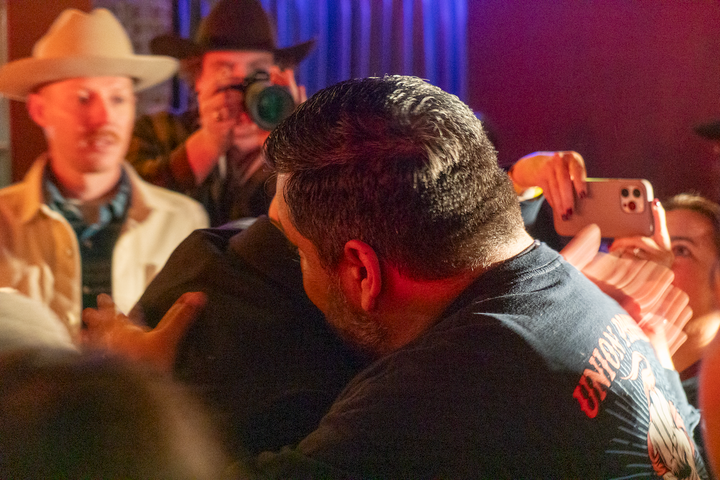Could Texas Finally Get A Safe Needle Exchange Program?
While bills promoting safe syringe exchange programs have died for years, this weekend the Texas House is considering a targeted bill to legalize pilot programs in seven counties

Take it from Dr. Bob Deuell, conservatives: safe syringe exchange programs are a good thing.
He’s a former state senator, rural doctor and evangelical Christian who in 2007 and 2009 led the charge to legalize them.
Safe syringe exchange programs, also known as needle exchange programs, allow injection drug users to trade used needles for clean ones. Deuell came from an era where the War on Drugs was still the modus operandi for both Democrats and Republicans. However, with data revealing that distributing syringes actually saved the lives of users and taxpayer dollars, he was convinced supporting the legislation was the right thing to do.
"At one time," he recalled to the Texas Tribune, "I was opposed, but I looked at the data. When people have disagreed with my vote, I've shown them the data and asked them, 'How could I argue with that?'” Plus, he added, "It costs us a fortune to treat HIV and hepatitis C. It's breaking the budget.”
He was preceded by members from both parties who agreed. Bills have been filed as far back as 2001 when former Rep. Glen Maxey (D-Austin), the first out gay member of the Legislature, filed a bill that would legalize syringe exchanges.
The only victory came in 2007 when former Rep. Ruth Jones McClendon successfully passed a bill allowing but not requiring local health authorities or nonprofits to establish the programs, as well as blood testing, education about communicable diseases and pathways to addiction recovery.
Otherwise even the most aggressive lobbying efforts have fallen short in 2015, 2019, 2021 and 2023. Some died in committee and others died in the Senate.
But that could change when the lower chamber debates House Bill 3174 by Rep. Toni Rose (D-Dallas) on Saturday.
HB 3174 would only legalize pilot programs in seven counties allowing them to operate safe syringe exchanges, where injection drug users can exchange used needles for clean ones without risking arrest.
According to one study, new users are five times more likely to enter drug rehabilitation and three times more likely to stop using drugs. Similar programs lowered Hepatitis C prevalence from 91 percent to 56 percent among those with substance abuse disorders.
They’re also one of the most conservative tools in the harm reduction toolbox. For every dollar spent on HIV treatment, these programs result in the average savings of $6 to $7. They’re also a safeguard for first responders, who have a high likelihood of exposure to used needles when responding to an injecting overdose and protect ministries who witness to drug users.
Indeed, pastors around the country have asserted themselves as true believers in treating users with dignity. Before syringe exchanges were legalized in Bexar County, a pastor was arrested for operating such a program despite explicitly stating the ban violated his religious beliefs. While Bexar ministries are protected, not all activists feel safe. Some counties have an informal agreement that officers will look away and not pursue these activists.
However, in other counties, especially conservative ones, religious activists have had to stay underground. This is despite being protected under the Texas Religious Freedom Restoration Act.
That’s why Deuell had another reason for supporting legalization.
“I look at it from the Christian viewpoint," he said. "What would Jesus do? We need to show compassion and try to help. [Addicts] are God's children, too. When they need new needles, this puts them in touch with someone who might reach them. The very act of handing them clean needles says, 'Your life has value to me. I want you to know that we care about you. When you want to get off, we're here to help you.' If they're in a back alley, using a dirty needle, there's no chance of that."



Comments ()